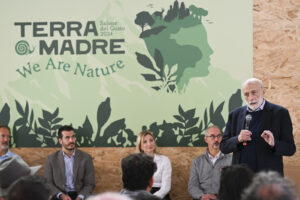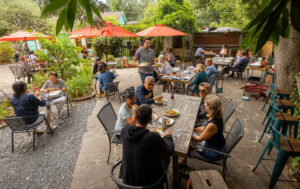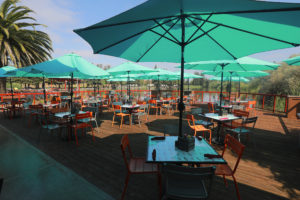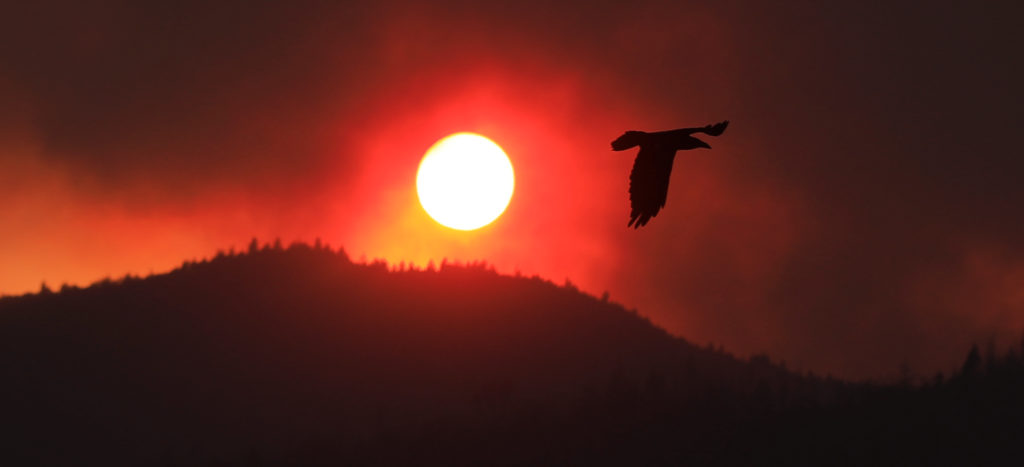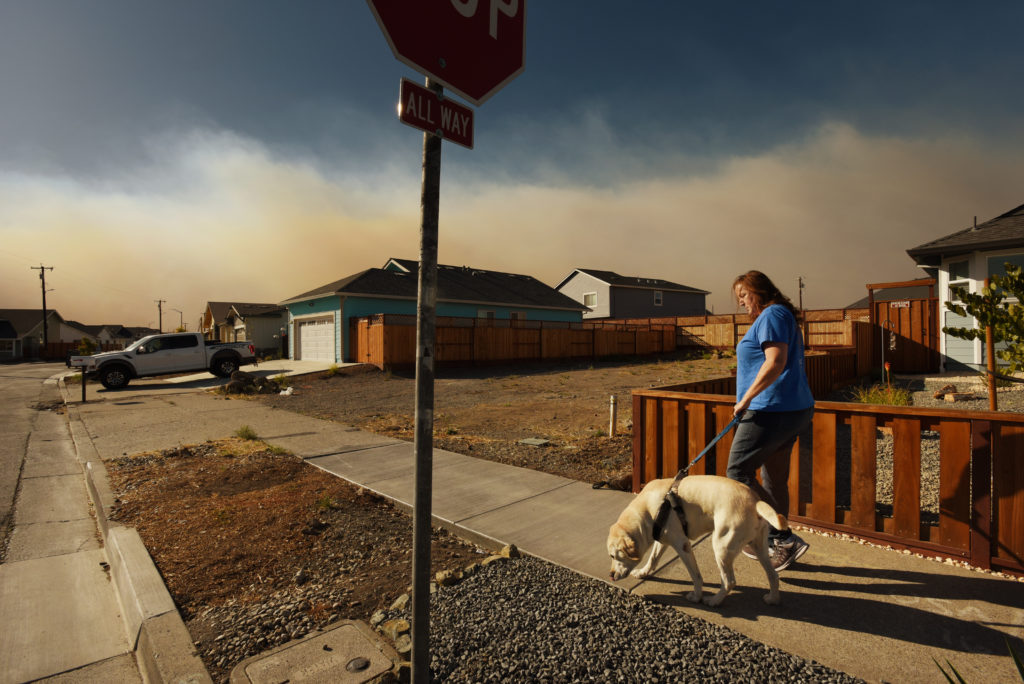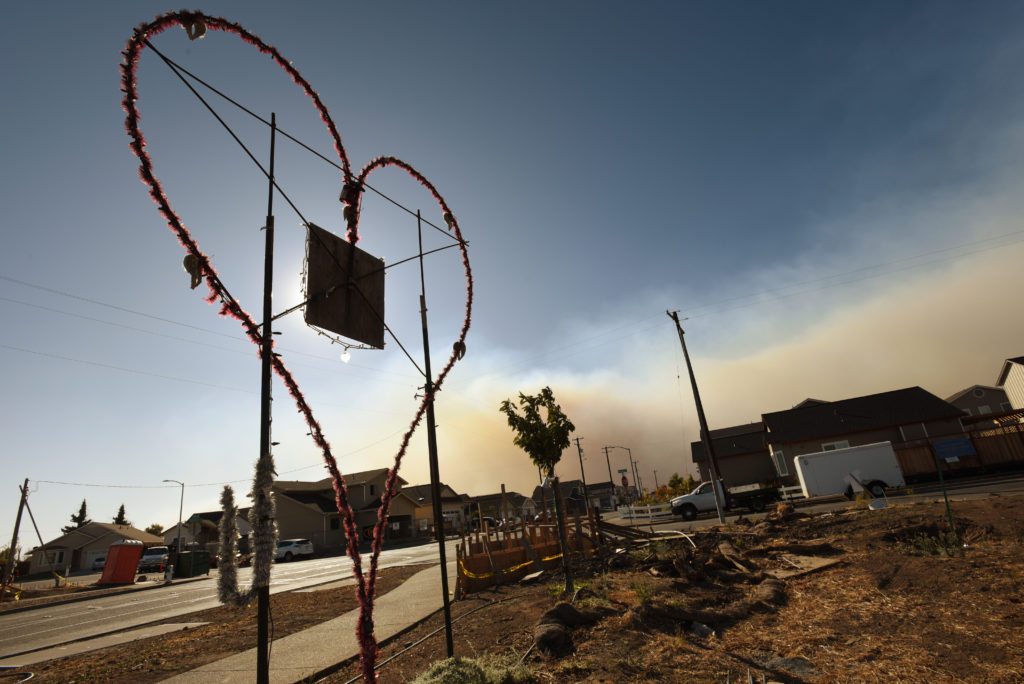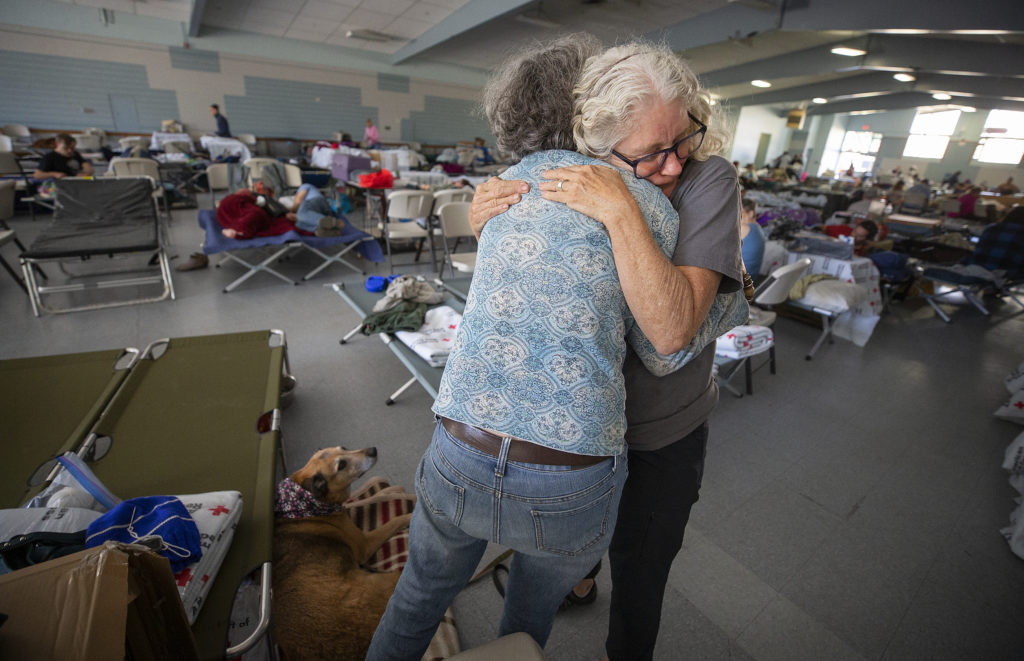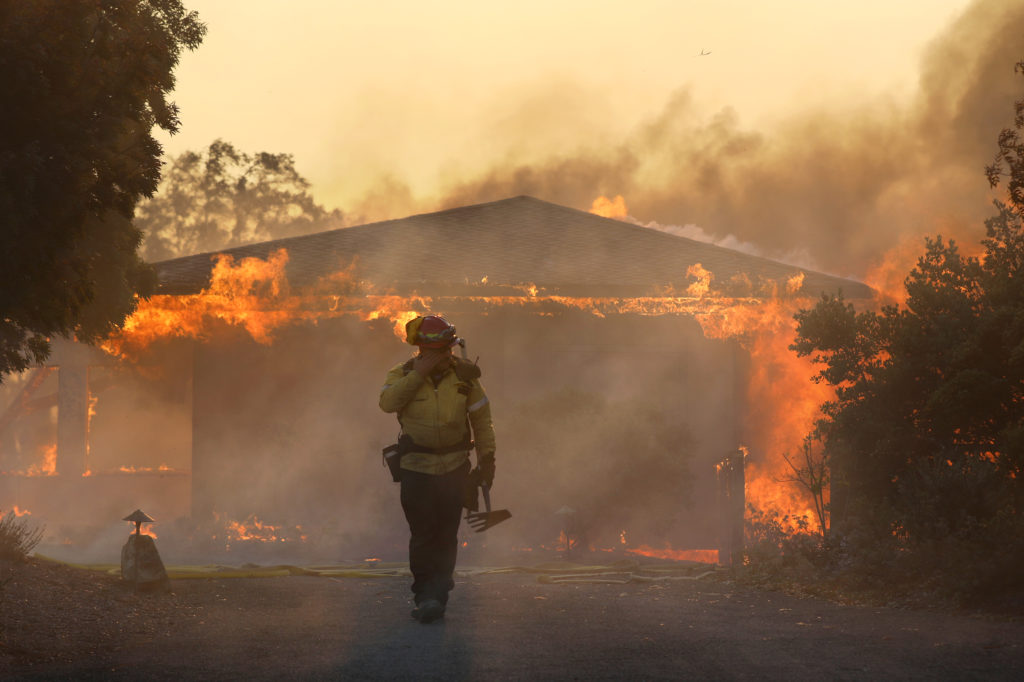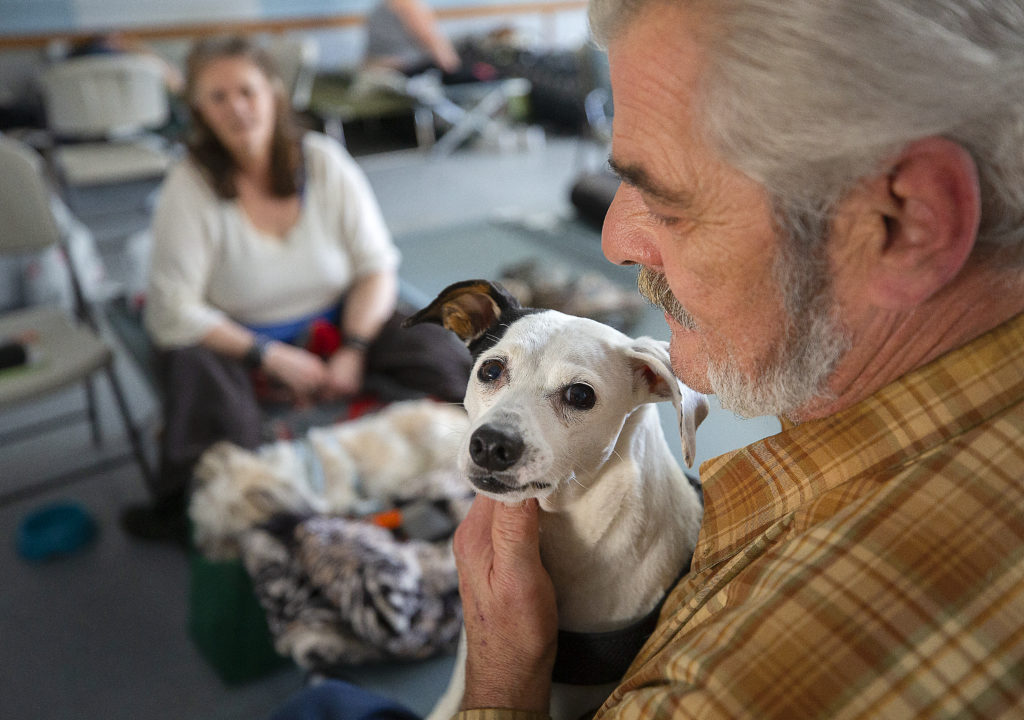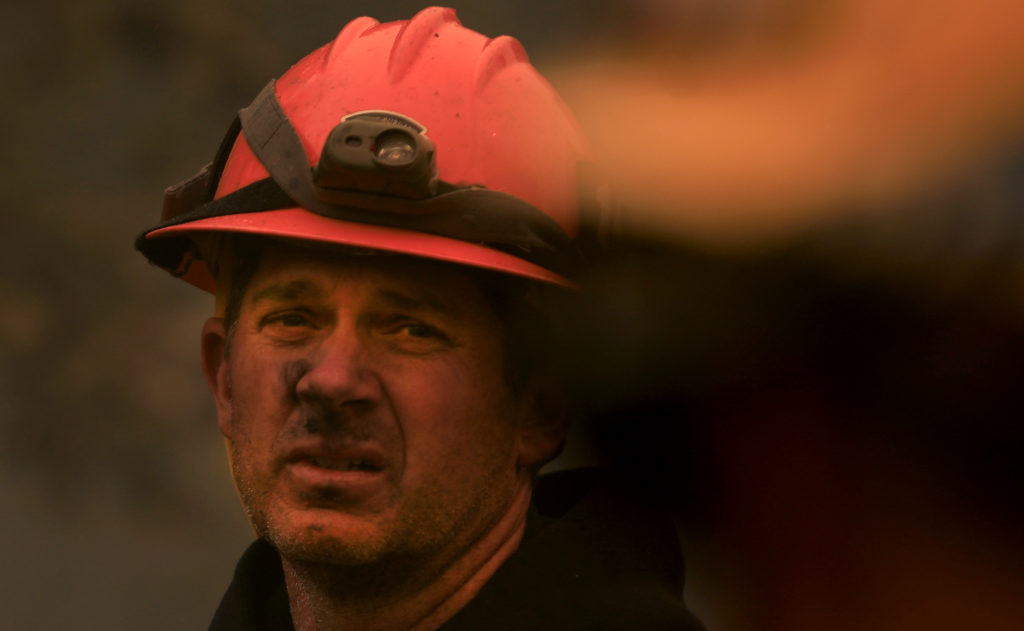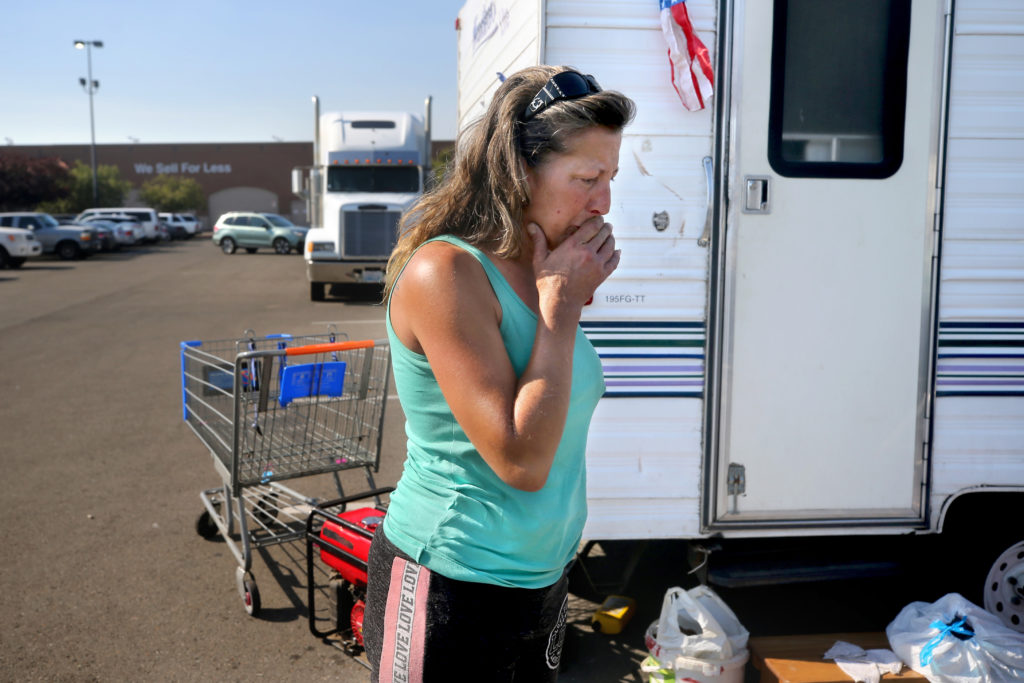Only two years after the devastating wildfires of October 2017 and eight months following the February floods, Sonoma County is again dealing with the impacts of natural catastrophe.
After sparking late Wednesday night, October 23, the Kincade fire has engulfed 282 structures, 141 of which were homes. It has burned 76,825 acres and forced more than a third of Sonoma County residents to flee their homes. Others have been separated from employment by damage or destruction to workplaces or closures due to power outages. Thousands have been in the dark, many for days on end, without electricity, hot water, fresh food and warm houses. The poor air quality continues to affect all of us; those with respiratory problems impacted the most.
The good news this morning, Thursday, October 31, is that containment of the Kincade fire has reached 60 percent and most evacuees have been permitted to return to their homes. The fire, however, remains at 76,825 acres — making it the largest wildfire in Sonoma County history.
Wildfires constitute a particularly stressful experience, according to the American Psychological Association (APA), “because the factors that influence their strength and direction can change at any moment.” Strong emotions — like feelings of hopelessness, depression, anxiety and anger — are common among people who have lived through these circumstances. Even those not directly impacted by the fires may experience “a sense of distress or vulnerability by living close by or watching the destruction unfold in news reports,” adds the APA.
If you or someone you know are experiencing distress due to the fire, or reemergence of PTSD symptoms, there are a number of free mental health services that can offer support — from helplines to online resources to therapy sessions. Please find below a list of resources.
The American Psychological Association also offers advice on their website on how to identify emotional responses to traumatic events, such as a wildfire, and how to recover from this experience: For those immediately affected: www.apa.org/helpcenter/wildfire, and general advice: https://www.apa.org/helpcenter/wildfire-tips.
Phone Support
National Alliance on Mental Health (NAMI) Sonoma County’s Warm Line is a non-crisis helpline that operates Monday to Friday from 10:00 a.m. to 7:00 p.m. Knowledgeable and compassionate NAMI staff members and volunteers provide information, resources, caring attention and non-judgmental support. Some staff and volunteers speak Spanish. Call or text 1-866-960-6264 or email warmline@namisoco.org.
Rebuilding Our Community (ROC) Sonoma County was established after the 2017 fires. Because disasters have long-lasting emotional effects, they are committed to providing long-lasting support. On the second anniversary of the Tubbs fire, they wrote, “If you or someone you know is still in need of help, please do not hesitate to reach out to ROC Sonoma County at 707-535-3349 or visit rocsonomacounty.org.”
Sonoma Rises is a cellphone application designed in response to the 2017 fires. Available on Android and iOS, it provides a mood tracker and support tools for healing and coping with stress. RiseTeens is a specialized section for ages 13-18. It is available in English and Spanish. Look for it in your cellphone’s app store.
Substance Abuse and Mental Health Services Administration’s (SAMSHA) Disaster Distress Helpline is a 24/7 national hotline dedicated to providing immediate crisis counseling for people experiencing emotional distress related to any natural or human-caused disaster. It offers toll-free, multilingual, confidential crisis support. Call 1-800-985-5990 or text TalkWithUs to 66746 to connect with a trained crisis counselor. Spanish speakers call 1(800) 985-5990 and press “2” or text Hablanos to 66746. For more information, visit DisasterDistress.samhsa.gov
Magellan Health has opened a free 24-hour crisis line for anyone impacted by California wildfires. Magellan will provide free, confidential consulting services and other resources, such as referrals to local non-profit organizations, shelters and additional community-based support to assist individuals in California. Call 1-800-327-7451
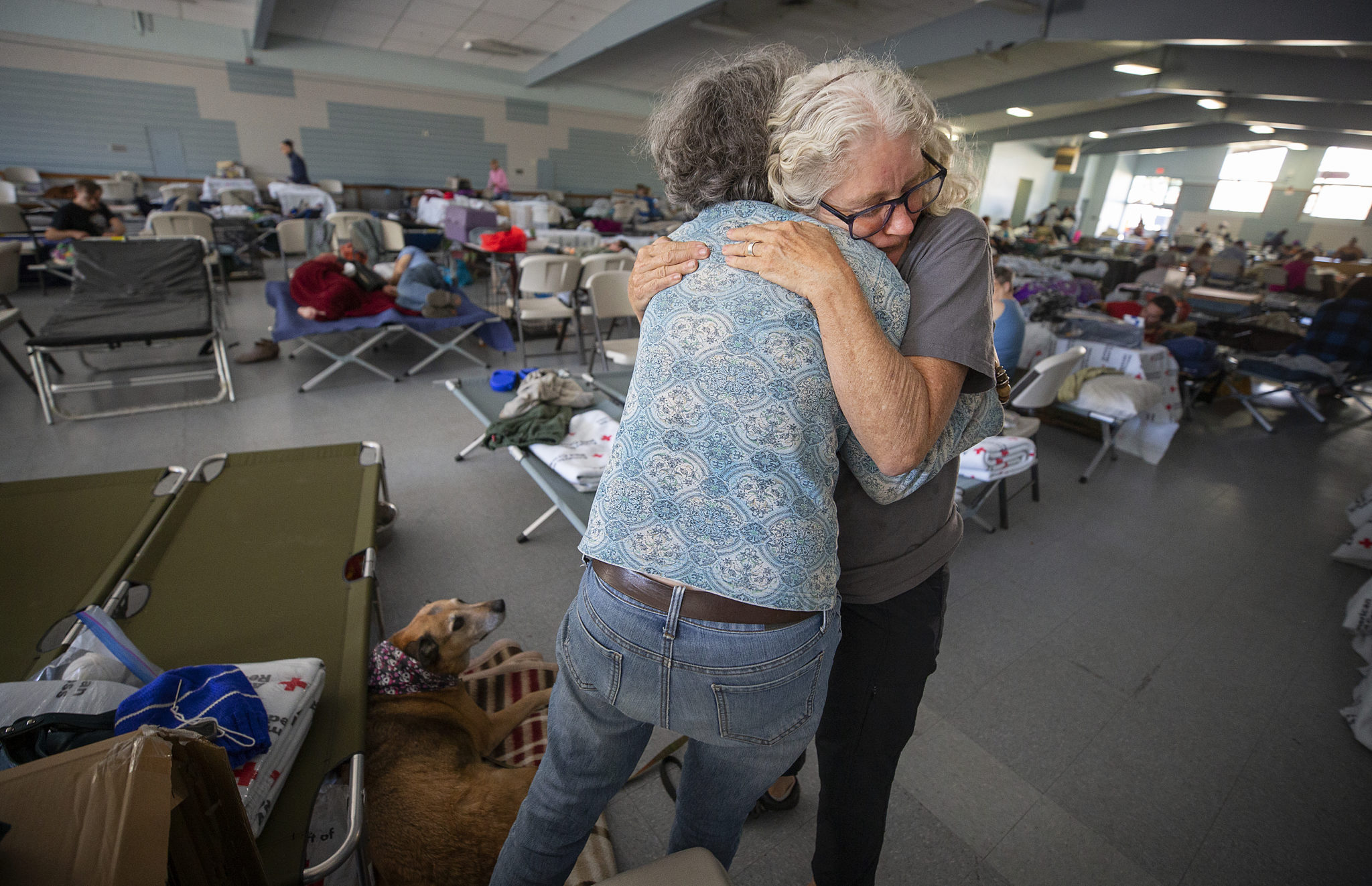
Online Resources
My Sonoma Strong is a Sonoma-specific web resource created by experts in trauma psychology. It aims to help recent survivors of disaster understand and identify common stress reactions that may occur after such an experience and help survivors develop healthy ways to cope with these reactions. It is free and self-guided, so you can explore it at your own pace. The site is available in English and Spanish. https://www.mysonomastrong.com/
Supportiv is a Berkeley-based online service that provides anonymous peer support groups in real-time. Users click a Chat Now button on the website, enter a sentence about what they want to discuss, and are routed into a chat room where they can vent and feel supported. The site requires no personal information. Normally there’s a small fee after 24-hours, but fire survivors can use the code SAFETY to receive free access for 30 days. https://www.supportiv.com/
Capacitar provides an “Emergency Kit” of simple body-based practices for immediate use to help people deal with challenging situations, including natural disasters. It teaches a few basic breathing practices, Tai Chi exercises, acupressure points and more. It is available in 20 languages. You can download it here: https://capacitar.org/capacitar-emergency-kit/
Healthy Children is a site created by the American Academy of Pediatrics. It provides a guide for parents and caregivers called “Responding to Children’s Emotional Needs During Times of Crisis.” It is available online in English and Spanish.
The Red Cross provides useful information online, including tips on emotional recovery from disasters. Like Healthy Children, they also provide guides on helping children cope with disaster. Most resources are available in English and Spanish, with some also available in Chinese, Korean, Vietnamese and Tagalog. Click here to visit their site.
Therapy and Group Support
The Redwood Empire Chapter of California Association of Marriage and Family Therapists (RECAMFT) has created a list of providers who have expressed willingness to offer three to five sessions of free therapy to fire survivors. RECAMFT does not guarantee the counseling services of any provider. https://www.recamft.org/freecounseling
NAMI offers weekly Wildfire Support Groups on Tuesdays in Santa Rosa at two different meeting times. For more information, please call or text NAMI Warmline at 866-960-6264 or email warmline@namisoco.org. Find more information on the NAMI website at https://namisonomacounty.org/nami-wildfire-support-group/
Santa Rosa City Schools’ Integrated Wellness Center provides free services in English and Spanish to parents and students based anywhere in Sonoma County; in any school district. The Integrated Wellness Center is open Tuesday through Thursday from 3:00 p.m. – 6:00 p.m. They have counselors to provide support and referrals for students and parents, basic nurse services, and academic support. Transportation can be arranged. Please note: Power outages may impact hours. Call 707-890-3827 or visit srcschools.org/domain/2112
The Sonoma Community Resilience Collaborative, spearheaded by Santa Rosa Community Health, is working in partnership across the local community and with The Center for Mind-Body Medicine, whose curriculum is the foundation for the program. There are opportunities to experience evidence-based self-care tools for effectively addressing personal and professional stress after the fires, network with peers, and learn an evidence-based model to self-healing and coping skills. For more information and a calendar of workshops, visit srhealth.org/about-us/resilience-collaborative
The Jewish Community Free Clinic in Santa Rosa offers free medical and mental health services. There are no eligibility requirements. Visit the clinic’s website for more information about services: jewishfreeclinic.org/about/services. 50 Montgomery Drive, Santa Rosa, 707-585-7780.
-
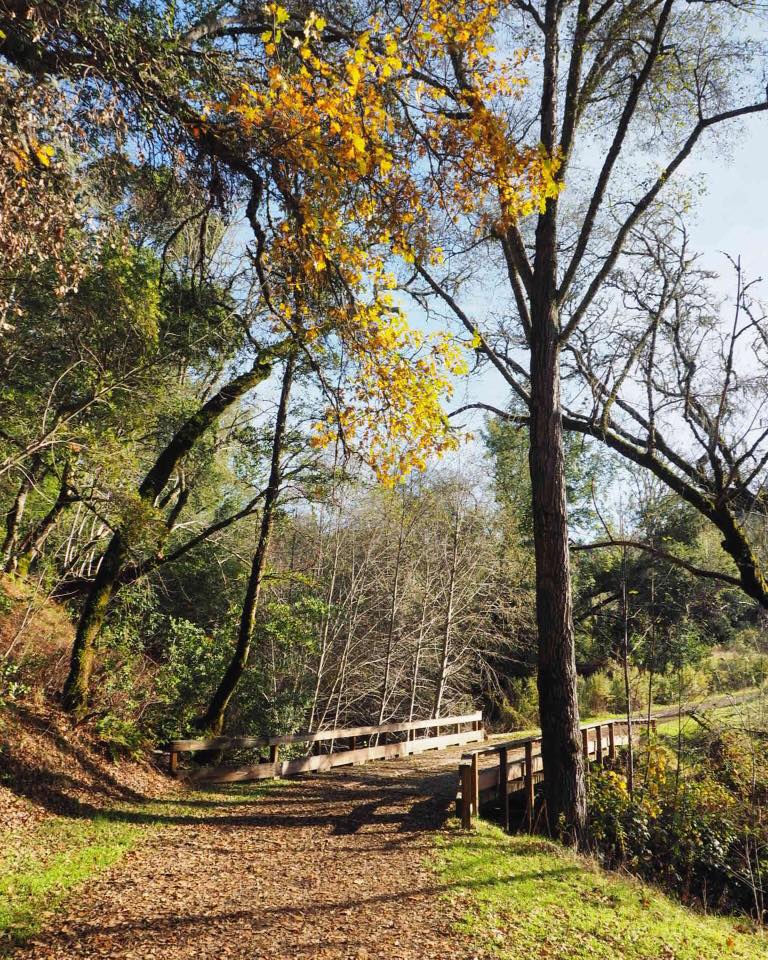
Weather permitting, Susan Karle will offer A Walk Honoring Loss and Resilience on November 21 at 10:00 a.m. in Sugarloaf State Park. (Photo by Adrienne Shubin)
Get Physical
Trauma-informed yoga for fire survivors throughout the county is sponsored by Healthcare Foundation Northern Sonoma County, with at least one class offered almost every day of the week. La Luz in the town of Sonoma offers classes in Spanish on Mondays. Specific classes may be temporarily unavailable depending on evacuation status and availability of power. Click here to view the schedule.
Weather permitting, Susan Karle will offer A Walk Honoring Loss and Resilience on November 21 at 10:00 a.m. in Sugarloaf State Park. This gentle Forest Bathing Walk is under a mile on a well-maintained trail. Karle will guide those recovering from the traumatic impact of the natural disaster in sharing circles. Click here for free tickets and more information.





